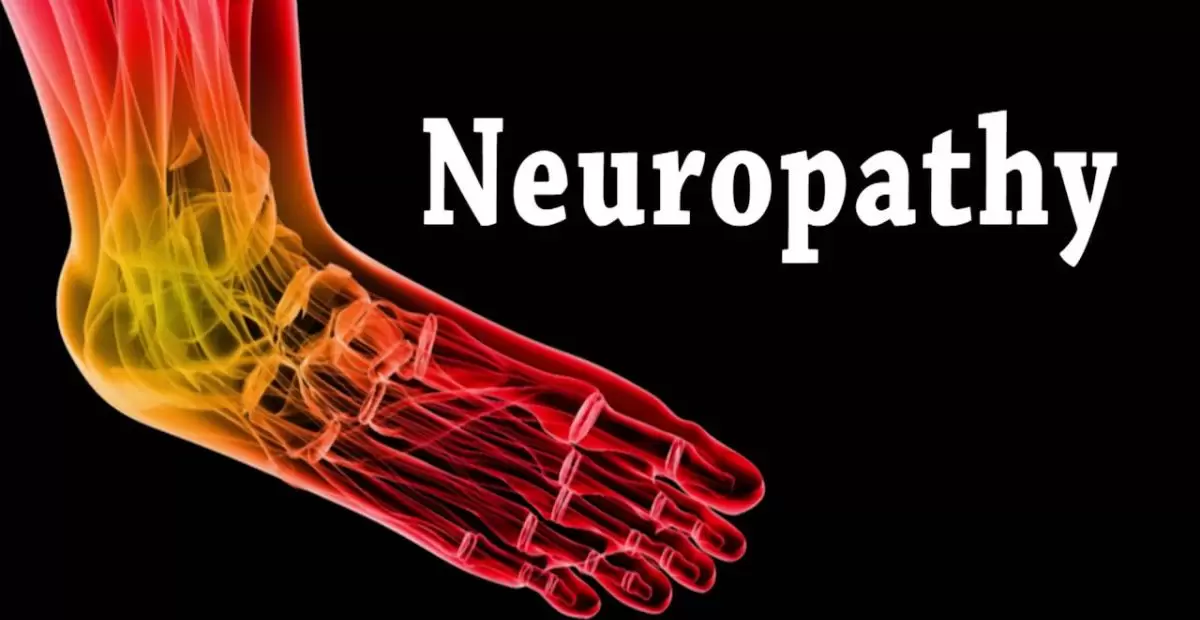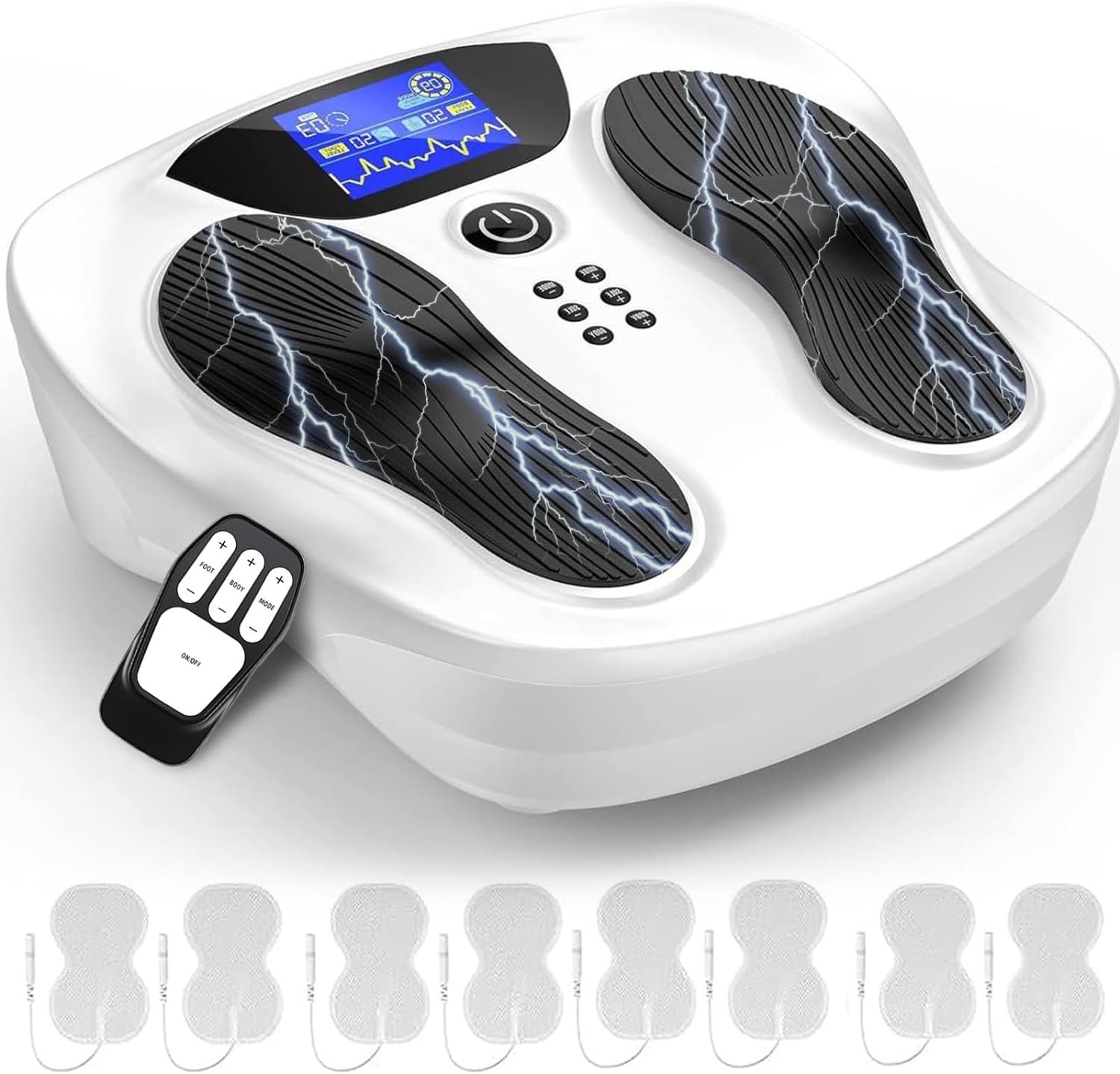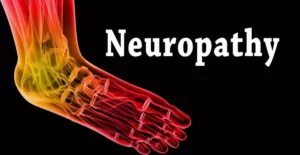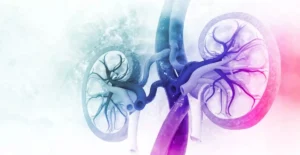Neuropathy refers to a situation whereby nerves in the body become affected in one way or another. This can make hands and feet tingle and become numb or painful at some point. It is as if you are experiencing a type of painful cramp where, even though it is your foot that is cramped up, the pain is always with you.
Have you ever wondered what the potential causes of neuropathy in the feet are? I recently realized that even illnesses such as diabetes, infections, or injuries can lead to nerve injuries. Picture your foot starting to tingle as you stop moving, but the tingling only gets worse instead of dissipating. The sooner you overcome these factors with proper care, the better for your foot health.
Neuropathy in feet therefore entails a situation where the nerves in feet are affected. This makes your feet feel numb, tingly, or even painful, as something akin to an electric shock can run through them. The causes of wanting too much sex include injuries, infections, or diabetes.
Understanding Neuropathy
Neuropathy, or peripheral neuropathy, refers to an issue that arises when peripheral nerves are affected due to injury. These nerves, which perform the function of sending signals from the brain and spinal cord to other areas of the body, can get damaged. Some of the common predisposing factors include elevated blood sugar level, inflammation, trauma and allergic reactions, and exposure to certain chemicals.
Some of the signs of neuropathy involve tingling and numbness of limbs, particularly the hands and feet and may at some point reach intense powder-puff feelings or even stinging sensations. Tremor is also prevalent, muscle it also depresses strength; and Coordination is also a problem for these patients, with everyday tasks being a struggle.
Causes of Neuropathy
There are many causes of neuropathy, including:
Diabetes: Prolonged high levels of sugar in the bloodstreams affect the nerve fibers.
Infections: Some infections want like Lyme disease, shingles, or the human immunodeficiency virus HIV cause neuropathy.
Injuries: Nerves can be affected by physical trauma of injury.
Autoimmune Diseases: The conditions like rheumatoid arthritis or lupus can provoke the immune response that leads to the destruction of the nerves.
Chemical: the use of toxic chemicals in processing or exposure to heavy metals or some drugs.
Genetic Disorders: There are certain congenital disorders that may cause neuropathy, as an ailment of our lab.
Nutritional Deficiencies: Some of the body deficiencies that can damage nerves include vitamin B deficiencies.
Symptoms of Neuropathy
It is equally important to state that the severity of neuropathy depends to a great extent on which nerve fibers are involved. Common symptoms include:
Numbness or Tingling: Medical canes are known to commence with only four limbs and can progress.
Sharp, Jabbing Pain: There is a price to pay for not seeing what is good and bad; it demands a bolt out of the blue by a keen and unbending probe.
Burning Sensation: Diabetic neuropathy, when present, manifests itself by signs such as a burning and warm feeling in the affected area.
Muscle Weakness: This may be associated with joint rigidity and inability of patient to straighten the limbs involved.
Loss of Coordination: Therefore, gait disorders that have the following characteristics of balance and coordination were perceived.
Sensitivity to Touch: Yet, cues of rejection do not only function as aversive stimuli, but furthermore even painful signals, if the corresponding experiences have been received sparsely.
Read More: Chronic kidney Disease
Diagnosing Neuropathy

Diagnosing neuropathy involves several steps:
Medical History: The patient’s records will be looked at by doctors and his/her symptoms will be checked also.
Physical Exam: This examination determines whether the reflexes are normal, muscle strength and whether the patient has sensations in specific areas of the body.
Blood tests: It had revealed principles that needed to be corrected and undergo an efficient check for underlying conditions, including diabetes or vitamins.
Nerve Function Tests: For the assessment of nerve conduction, two major procedures are available: Electromyography (EMG) and nerve conduction studies.
Imaging Tests: An MRI or CT scan to check for the reason of the issue.
Types of Calf and Foot Therapy
Massage Therapy: Massage has been proven to provide relief for muscles and the relaxation of tender muscle tissues as well as improved circulation of blood in the body. There are some techniques by which patients can be helped such as ; Swedish massage, deep tissue massage, reflexology etc.
Physical Therapy: Specific exercises that involve the muscles, flexibility and balance that have been developed to fit the disabilities. They are division into stretching, toning exercises and balance exercise forms.
Hydrotherapy: It is also equally important to note that most heated water therapies are effective in managing pain and inflammation. Some of the activities that can be useful for this include bathing on a tub or using a hot tub among others.
Electrical Stimulation: Transcutaneous electrical nerve stimulation, also known as TENS, is an electrical way of alleviating pain by applying electrical currents of low voltage. It appears to have an effect which helps to minimize nerve pain as well as augment muscle function.
Hot and Cold Therapy: These are the steps involving the use of hot and cold packs: Applying cold and heat packs interchangeably can be helpful in decreasing pain and reducing inflammation. Heat stimulates circulation and convection currents while cold – novices on the painful area and reduces inflammation.
Benefits of Calf and Foot Therapy
Calf and foot therapy has also numerous uses for patients with neuropathy problems. Another benefit, which can be considered more important than the rest, is the analgesic effect. This can be easily explained given that treatment using techniques such as massage therapy and hydrotherapy can lessen discomfort and minimize the burning feelings that characterize neuropathy. These therapies have the effect of reducing muscle contraction and tension, hence making the body to be more relaxed and consequently improving the quality of its existence.
A final benefit arising from calf and foot therapy has to do with mobility, whereby one becomes more mobile as a result. Physical rehabilitation, including frequent touches / massages, as well as physiological exercises such as exercises involving the lower limbs, help enhance movement and flexibility. This is especially true for the aged, patients with neuropathy who may experience loss of muscle strength or coordination.
Read More: Crohn’s Disease
Self-Care Techniques
- Foot Soaks: Some of the proposed solutions include soaking your feet with warm water mixed with Epsom salt to help minimise the pains.
- Proper Footwear: they are offering what is considered to be an innovation of more comfort in terms of a lighter shoe which can in some way offset the stress that is endured in the feet .
- Regular Exercise: Staying physically active, for instance through a light workout which may include walking, swimming or doing yoga and/or other leisures like, reading, painting, watching videos therefore minimizing much tension.
- Healthy Diet: Thus for prevention of these nerve disease, one has to be in a position to ensure they take healthy foods so that the body may be supplying itself with vitamins and minerals.
- Regular Monitoring: This includes washing and inspecting the feet on daily basis for signs of what might be a new development such as sores, cuts or an infection mainly arising from diabetes.
Preventing Neuropathy
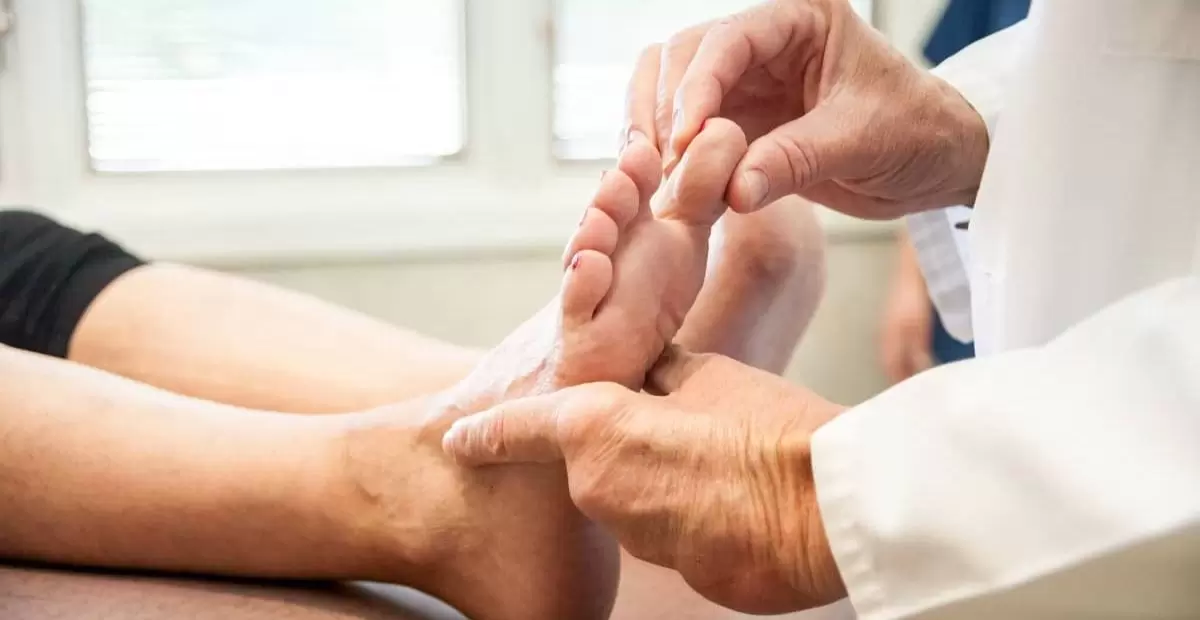
Neuropathy prevention entails early and appropriate interventions aimed at ensuring the proper function and health of nerves as well as minimizing the influence of neuropathy causal factors. Another important aspect is the regulation of blood sugar levels, particularly for members of the diabetic group, as high blood sugar level negatively affects the nerves. Some of the lifestyle measures that are helpful in maintaining nerve health.
Several factors that predispose individuals to developing neuropathy involve routine health examinations, and such nerve damage might be prevented. One of the most effective ways to prevent them is to seek early medical attention when showing signs of sickness, or when infected by bacteria, viruses, or other illnesses. Eradicating or minimizing exposure to toxic substances like heavy metals and some chemicals similarly helps in prevention.
Conclusion
Nerve damage is a tough condition that affects quality of life in many ways that manifest in the sufferer’s everyday life. The specifics touching on the disease’s causes, nature of its manifestation, and possible ways of addressing the issue are important in handling the condition.
Calf and foot therapy give hope to patients with neuropathy because TRH ignited pain relief, augmented circulation, and mobility. Thus, modern employment of professional treatments and self-care procedures, persons can manage the discomfort and enhance the quality of their lives.

